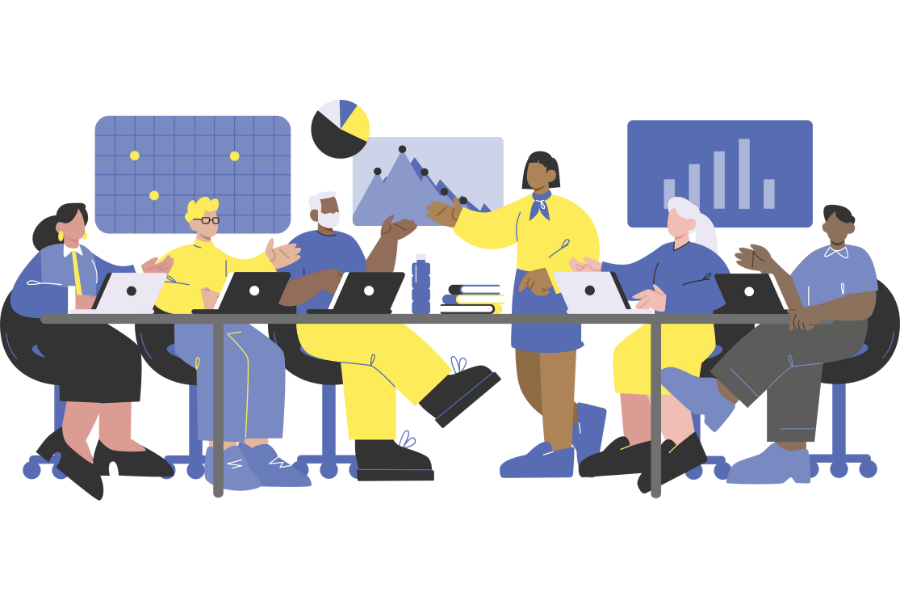 Personally, I love rules.
Personally, I love rules.
I love the boundaries and expectations that rules set. I love pushing up against them and feeling the tension press back on me; this helps me be intentional about what I break. It’s crucial to be reminded that some rules should remain hard limits or immovable, while others are begging for challenge and change.
Our Spring/Summer 2023 issue focuses on the most complex and nuanced theme that Workforce Architecture has tackled to date: shifting social and workplace rules.
Using a wide lens, we explore how outdated social contracts impact workplace relationships. We dig into ChatGPT, the four-day work week, empathy in research, and leadership that continues to be affected by the pandemic. By the end of this issue, we narrow our focus all the way down, providing a tool for individuals to define their own Career SweetSpot as jobs, workplaces, and career patterns continue to change.
Social and workplace rules were never written to benefit everyone.
The game has always been rigged in favour of the house, which may have been acceptable if organizations recognized their essential obligations to workers and communities. Today, different employment, economic, and societal structures have weakened the relationships that used to hold organizations to account. We’ve arrived at a moment when rules are being questioned and the intentions behind them are being challenged. Expectations and possibilities are evolving right across the board, including even the most fundamental aspects of employment: where we work, what hours we work, and which benefits are provided to whom and when.
We’re living through a social revolution. It’s easy to get overwhelmed by all the change occurring in the world around us. Social revolutions affect values, norms, behaviour patterns, and situations. Further, change occurs in these many dimensions all at the same time. In North America, we’re certainly experiencing splits and shifts in values, what we can expect from others and institutions, how people act, and the situations we find ourselves in.
Some rules are easy to change. Others create a cascade of questions that can cause leadership paralysis, as employees push ahead with waves of non-compliance and even rebellion. Instead of waiting for updated rules that govern complex systems, individuals take action and shine new light on what might be possible. For example, adapting to longevity and careers that last well into our 70s challenges organizations to rethink rules related to hiring, training, career paths, salary structures, and rewards, never mind rules about pensions and benefits that require long overdue legislative reform.
Yet despite organizations’ inability to embrace older workers, today’s Talent Revolution is being shaped by baby boomers who refuse to follow traditional rules about retirement. They are forging their own paths and resetting work-related expectations along the way. They are architects, as we all must be.
This issue’s analysis of the four-day work week describes why Henry Ford played a pioneering role in establishing the five-day work week. One person, looking out for one business, helped set the standard for all business today. Likewise, the concepts of employee engagement and career paths were the brainchildren of an academic and consultant, respectively, before organizations economy-wide adopted them as critical components of their operations.
Among the most valuable lessons of this issue is the power of one. For each of us to be ready to shape, respond to, and sometimes even rebel against rules, first we have to remember what we, personally, stand for. A common call to action emerges in the final lines of many of our articles: What are you going to do about it?
This issue of Workforce Architecture challenges each of us to consider who we are to each other, what rules we want to follow, and how they are embedded in our core values.
In a world forever altered by the COVID-19 pandemic, topics related to loneliness and social isolation continue to gain prominence. Since setting rules is itself a collective activity, the act of questioning them can also provide hints to solutions. One person alone has no need for rules. They serve to keep groups of people aligned and connected, while maintaining order and establishing predictable patterns. For too long, they’ve also created and sustained structures of systemic inequality and discrimination.
Unsurprisingly, every article in this issue includes a clear focus on the role that each of us, as individuals, can choose to play as part of the workplace communities we belong to. While we can individually react to rules as they affect us, the solution for real change will always be to work together to create new rules that are inclusive, equitable, and better than what came before.
Social and workplace rules were never written to benefit everyone. Do you feel the tensions as existing rules clash with shifting values? I do, every day. But to create new and better rules, we’ll have to collectively reckon with the emotion, turmoil, and uncertainty that these tensions bring.
This is fundamentally human work—and I can’t think of any work more important.
Lisa Taylor, President, Challenge Factory
